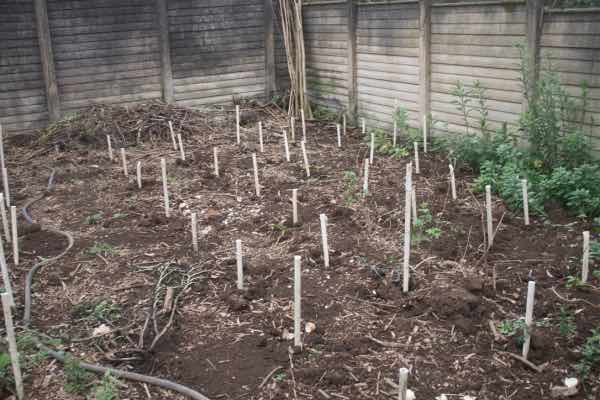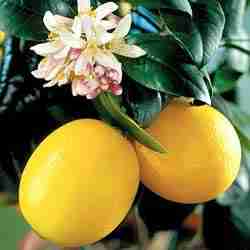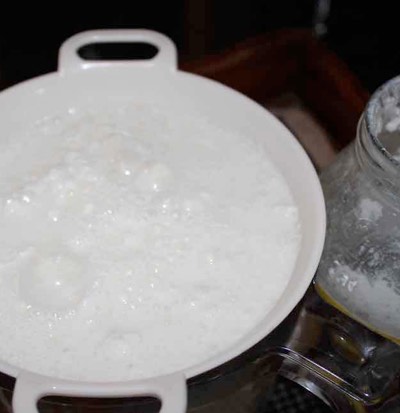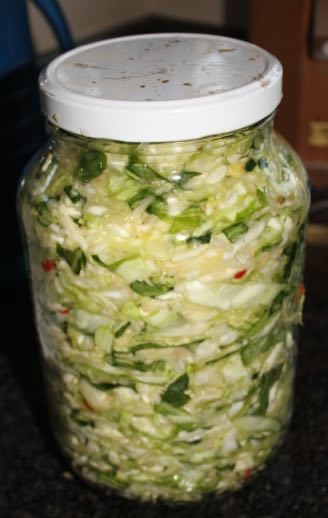Chronic stress upsets the happy tum
Chronic stress upsets the happy tum making us prone to inflammation, angry blood vessels and many nasty diseases. Seeking "peace on the range" may be the start of a new journey within the self.
We all know that when we are disturbed, upset or frightened the first place we feel it is in the tum; it could be a dose of diarrhoea, heartburn or even constipation. Researchers are finding these chronic mood changes have a great influence on the balance and the diversity of the bugs in our intestines; the so-called microbiome.
Fight or flight
The body's first response to a stressful situation is one involving the sympathetic nervous system. If it is a situation you feel you can manage then it is quite normal to "fight back" and endeavour to take control. That does not necessarily mean an angry retort. It could simply be to swerve when some idiot breaks the rules of the road. In short it is a healthy counter to an acutely disturbed circumstance.
The second response is when realising the situation is beyond your control to "get out of Dodge." There's no point trying to fight back if your car is on fire; you just flee.
These are quite normal responses to acute stresses.
The cortisol reaction
Cortisol is one of the hormones that quite naturally and normally generates glucose, our main energy source. When stressed the endocrine system produces a cascade of these neurotransmitters that help us to deal with an acutely disturbing situation.
Neither the stimulus to fight or flee nor acutely elevated cortisol are likely to affect the microbiome but they do inhibit the osteoblasts that should normally constantly be replenishing our aging bone cells.
Chronically raised cortisol contributes to skeletal porosity and the early risk of fracture.
“Chronic stress can change the diversity and composition of the gut microbiome and essentially tips us toward an imbalance or dysbiosis.”
Aasma Shaukat, MD, MPH, gastroenterologist.
The serotonin link
Serotonin is a neurotransmitter produced in the brain; it helps us manage anxiety, mood and is profoundly normalises sleep, for example.
There are even more serotonin receptors in the gut than in the brain; disturbed levels of this important compound by stress also impact on the friendly flora in the intestines.
That in turn then affects our immunity and levels of inflammation in the body.
Chronic stress inhibits bone growth
Via complex biochemistry that has no place on this page, chronic stress inhibits certain growth hormones and factors that are involved in the laying down of new bone[3]. That is a major factor in the development of osteopaenia and consequently frailty syndrome; the early onset of weakness, pain and disability.
There is an intricate play between the mind, the gut and the organs.
Chronic stress upsets the happy tum
It's chronic stress amongst many other factors that brings about these changes in the gut; situations that you feel unable to deal with but cannot flee from. A difficult boss, a disabled child or a mother who has had a stroke may eventually exhaust our normal coping mechanisms and threaten to seriously throw us out of kilter.
Researchers have found that chronic stress brings about changes in the bugs in the gut; pathogens begin to flourish causing generalised inflammation and there is loss of the friendly microflora that produce the short-chain fatty acids that are so important. They supply energy to the cells lining the gut and modulate the immune system; preventing both over and under-reactions to situations.
The hyperactive autoimmune diseases that are seriously growing in leaps and bounds are just as challenging as a poor response to pathogens that invade our bodies. Both are responses to chronic stress that upsets the happy tum.
That makes us vulnerable to conditions like chronic fatigue, raised blood pressure and depression; also to leaky gut syndrome, bowel upsets and poor absorption of important micronutrients.
Peace on the range
So how do we go about finding peace on the range in the face of the chronic stresses of daily life that we all have to endure? Things that seriously would overturn the applecart and upset the happy tum were we not to face them squarely.
Forest bathing
Forest bathing comes in many different forms. In essence it is being outwardly active whilst the mind and the spirit are given space to be still; and to appreciate the scents, sounds and beauty of the surroundings. Others might say "take time to smell the roses."
So it could be a walk in the forest looking for berries or mushrooms; listening out for the first call of the cuckoo in early spring.
It could be a stroll through the vegetable garden looking out for the first seeds of spring announcing themselves, giving the promise of a mountain of food to come.
 Waiting for the first potato haulms
Waiting for the first potato haulmsLast year we lifted nearly half a ton of new potatoes from our suburban garden; they have the great virtue of being rich in the "resistant starch" that supports the microbiome.
 Ah, the sweet scent of lemon blossom.
Ah, the sweet scent of lemon blossom.It could also be a gentle cycle through the countryside, reaching for the flute or a heap of other activities. There's only one rule; the cellphone must be firmly left at home, out of reach and mind, unable to disturb the growing inner quietness.
Meditation
Meditation is a very old practice in which we become increasingly still, seeking after an inner calm and clarity when faced with stressful situations. It's not just for mystics; ordinary people like you and me also need to discover quietness and discern direction.
It's a term that distressingly has been brought into disrepute in some ultra-conservative Christian circles, thought to be an "Eastern practice" or some such. Yet the command to "be still and know that I am God" is in fact a call to meditation.
Lectio Divina
The discovery of an ancient religious practice known as Lectio Divina has been a great step forward in my own life in the management of chronic stress. It refers to a spiritual reading of a short passage of scripture, slowly, several times teasing out the inner truths.
It is quite different to the hurried reading of a whole chapter or even several passages to fulfil the perceived need for a "quiet time" which for me for many years was anything but; rather it was a religious duty that certainly had some meaning but fell far short of discovering the heart of Almighty God for myself.
As I increasingly found meaning, stillness and purpose it has grown to taking up the best part of an hour in the early morn; time willingly and joyfully given as I respond to the invitation to sit with God in "heavenly places." Welcoming and discovering the real meaning of a text of scripture cannot for me at any rate be accomplished hurriedly.
The psychobiotic diet
This is not a diet in the normal sense; it simply emphasises the importance of enjoying fermented foods daily that are rich in these friendly bugs; and the resistant starch that they absolutely must have to thrive. Known generally as pre-biotics it means consuming meals high in fibre, whether we enjoy them or not.
So whole grains and plenty of legumes should be on the menu daily; in fact the Cancer Society recommends them at every meal.
Research has proved that those enjoying homemade probiotics and plenty of fibre daily feel less stressed; and fecal examinations reveal more of the beneficial bacteria.
Homemade probiotics
 Bulgarian kefir being strained
Bulgarian kefir being strainedIf chronic stress upsets the happy tum by quelling the friendly flora and favouring the pathogens like E.coli and Shigella as researchers have found, then another approach is a daily dose of probiotics.
Researchers are adamant that it's not only the quantity of friendly bugs in the happy tum, reportedly around an astonishing 2kg, but also the diversity of bacteria that helps us to manage the pressures of our stressed society.
 Fermenting sauerkraut
Fermenting sauerkrautWalking daily
Walking generally has been shown to help with managing mood; by helping to increase normal movement of the bowels is also directly benefits the microbiome and consequently wellness.
"Cross-talk between active skeletal muscles and the gut microbiota, triggered by the release of myokines, reveals how regular physical activity boosts host immunity and facilitates a more diverse intestinal community."
- Gastroenterology, July, 2025 [2].
The thief of time
Traditionally procrastination is known as the great thief of time; and so it is. But increasingly the cellphone, social media and television too are stealing so many hours that we have little opportunity for quietness and meditation.
Nor do we today have time for the activities that enable us to deal with chronic stress; taking a gentle stroll, hobbies and gardening, for example.
"There is increasing evidence that exposure to plants and green space and particularly to gardening, is beneficial to mental and physical health."
- Clinical Medicine (PMC6334070)[2]
Resist the devil
Resisting the devil so that he will flee from us is no easy matter. It means determinedly leaving the cellphone behind, cultivating good habits and choosing healthy foods.
Researchers have clearly shown that the friendly flora is utterly dependent on resistant starch and plenty of fibre. All the tea in China, kefir from the Caucasians and German sauerkraut will not protect us from the chronic stress that upsets the happy tum without whole grains and generally unprocessed food.
The material expressed on this page is gleaned from the nutritional and environmental literature; it is clearly referenced. A plain distinction is made between the author's opinion and that which is scientifically proven. When in doubt consult your health professional.
To suggest a correction or clarification, write to Dr Bernard Preston here. Contact.
Chronic stress upsets the happy tum
Chronic stress upsets the happy tum by disrupting the friendly bugs. A poor diet devoid of fibre and resistant starch simply adds to the "dysbiosis" as it is called.
Less than 5% of those eating typical grocery store food are getting sufficient fibre; it is little wonder we are so stressed and ail from so many diseases disturbing the happy tum.
When browsing use right click and "Open Link in New Tab" or you may get a bad gateway signal.
Newsletter
Our newsletter is entitled "create a cyan zone" at your home, preserving both yourself and Mother Earth for future generations; and the family too, of course. We promise not to spam you with daily emails promoting various products. You may get an occasional nudge to buy one of my books.
Here are the back issues.
- Lifestyle and ideal body weight
- What are ultra-processed foods?
- Investing in long-term health
- Diseases from plastic exposure
- Intensive lifestyle management for obesity has limited value
- A world largely devoid of Parkinson's Disease
- The impact of friendly bacteria in the tum on the prevention of cancer
- There's a hole in the bucket
- Everyone is talking about weight loss drugs
- Pull the sweet tooth
- If you suffer from heartburn plant a susu
- Refined maize meal and stunting
- Should agriculture and industry get priority for water and electricity?
- Nature is calling
- Mill your own flour
- Bake your own sourdough bread
- Microplastics from our water
- Alternative types of water storage
- Wear your clothes out
- Comfort foods
- Create a bee-friendly environment
- Go to bed slightly hungry
- Keep bees
- Blue zone folk are religious
- Reduce plastic waste
- Family is important
- What can go in compost?
- Grow broad beans for longevity
- Harvest and store sunshine
- Blue zone exercise
- Harvest and store your rainwater
- Create a cyan zone at your home
Did you find this page interesting? How about forwarding it to a friendly book or food junkie? Better still, a social media tick would help.
Address:
56 Groenekloof Rd,
Hilton, KZN
South Africa
Website:
https://www.bernard-preston.com